Jessica Chastain and Anne Hathaway find their friendship tested by tragedy in Sixties suburban America
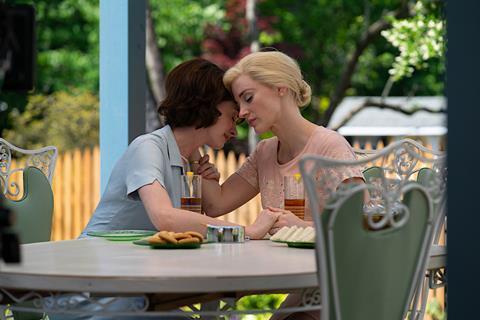
Dir: Benoit Delhomme. US. 2024. 94mins
In 1960s affluent American suburbia, populated by gleaming cars, manicured lawns and white picket fences, neighbours Alice (Jessica Chastain) and Celine (Anne Hathaway) enjoy a close friendship that cuts through the more mundane aspects of domestic life. Yet when tragedy occurs, their bond begins to splinter and warp. Guilt, grief and paranoia make for a heady mix in this English language remake of the 2018 Brussels-set film, which trades heavily in kitschy melodrama to entertaining, if largely forgettable, effect.
There is some fun to be found in the arch campness of it all
The original film’s director Olivier Masset-Depasse was due to helm here but, when he had to leave the project, the remake’s cinematographer Benoit Delhomme stepped up to make his directorial debut. This version skews very close to the original, which was based on a novel by Barbara Abel and premiered at Toronto before going on to win nine Magritte awards in Belgium and being released in several — largely French-speaking and European — territories. Fuelled by the star power of Chastain and Hathaway (who have previously worked together on films including Interstellar and both produce here) this English language remake has the potential to travel further. It releases in the UK on March 27, where it is likely to tempt audiences looking for alternatives to Kung Fu Panda 4 and Godzilla X Kong, although a US release date is still unconfirmed.
Right from the off, Delhomme’s experience as a cinematographer (on the likes of Lawless, The Theory Of Everything and Salome) is evident in his every crisply composed frame. An opening sequence strikes an immediately off-kilter note; Celine (Hathaway) beatifically picks flowers from her lush, sunny garden while her neighbour Alice (Chastain) watches her through the curtains, shrouded in shadow. (The film shot on location in New Jersey, although an exact location is never specified.) Anne Nikitin’s score is ominous as Alice enters Celine’s home, only for the film to immediately upend expectations with a surprise birthday party, which highlights the strong, long-established relationship between the two women (and seeds several plot points for later use).
While Alice and Celine couldn’t be more different – the former frustrated with the life of a homemaker and desperate to return to her job as a journalist, the latter happy with her traditional lot – they both dote on their eight-year-old sons. Pointedly, Alice does not want another child, while Celine cannot have another. And it is when Celine’s son Max (Baylen D. Bielitz) suffers a tragic accident that everything changes. In the weeks that follow, Celine pushes Alice away, seeming to blame her for witnessing but not being able to stop Max’s accident, then begins to find solace in spending time with Alice’s son Theo (Eamon O’Connell).
At first, Celine’s slighly odd behaviour could well be put down to her grief, which has driven her husband Damien (Josh Charles) into a debilitating depression. The screenplay by Sarah Conradt-Kroehler is strongest here, capturing Celine’s initial shock and subsequent numbness, then her desperate attempts to return to some kind of normality; turning up at Theo’s school, hosting awkward dinner parties. Her entire identity was wrapped up in her son, and there is genuine pathos in her attempts to paper over the gaping hole in her life.
When Alice begins to become suspicious of Celine’s motives, her own mental health history means she is unable to convince her husband Simon (Anders Danielsen Lie) to believe her. From this point, the film begins to ramp up the histrionics, both women being driven to mania by feelings of grief, guilt and paranoia — which, in this hermetically-sealed environment, they are unable to properly express — and both husbands fading uselessly into the background. While a committed Chastain and Hathaway do their utmost to inject some gravitas into proceedings there are some moments which border on the absurd, particularly as it reaches its frenzied climax.
Still, there is some fun to be found in the arch campness of it all and, perhaps unsurprisingly, the film looks gorgeous. As with the original, there is plenty of the Hitchcockian to be found in everything from the styling of the two women to often vertiginous camera angles and the increasingly uneasy domestic atmosphere. And Russell Barnes’s unfussy production design pleasingly captures the cookie-cutter affluence of the period without it becoming an overwhelming pastiche.
Costume design, by Mitchell Travers, is particularly impressive, and effectively tells the story of the women’s changing dynamic. While Celine and Alice wear similar pastel dresses early on, Alice’s looser, brighter colours soon contrast with Celine’s largely black attire. A scene in which a recently-bereaved Celine wears a white Jackie Kennedy-inspired outfit to Theo’s school recital, in a ill-judged attempt at a fresh start, is both satorially and emotionally striking.
Production companies: Freckle Films, Mosaic
International sales: Anton info@antoncorp.com
Producers: Jessica Chastain, Anne Hathaway, Jacques-Henri Bronckart, Kelly Carmichael, Paul Nelson
Screenplay: Sarah Conradt-Kroehler
Cinematography: Benoit Delhomme
Production design: Russell Barnes
Editing: Juliette Welfling
Music: Anne Nikitin
Main cast; Jessica Chastain, Anne Hathaway, Josh Charles, Anders Danielsen Lie, Eamon O’Connell, Baylen D Bielitz, Caroline Lagerfelt



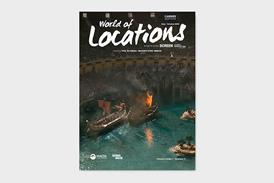






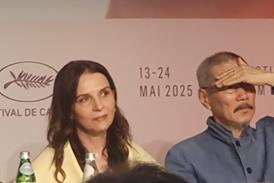
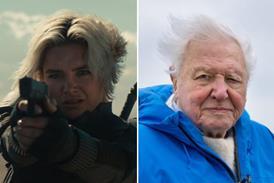
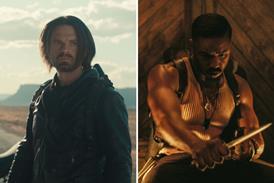










![The Brightest SunScreen[Courtesy HKIFF]](https://d1nslcd7m2225b.cloudfront.net/Pictures/100x67/3/5/0/1448350_thebrightestsunscreencourtesyhkiff_312678.jpg)









